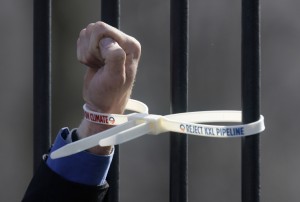Eric Nagourney, in the New York Times on Feb. 15, wrote:
You may not carry a laptop case made out of recycled fixed-gear bicycle tires. And it has probably been a while since you used yak dung to heat your home. But, hey, you’re an environmentalist. At least, that’s what you and your fellow boomers tell those pollsters whenever they ask.
So why is your carbon footprint bigger than the footprint of the T. rex that turned into the oil you’re using in your Prius?
When researchers tried to calculate carbon dioxide emissions by age group in the United States, guess who scored worst? You in the old Grateful Dead shirt — we’re talking to you.
Ouch.
It's true. My generation, the one behind the first big wave of environmentalism, the generation that staged the first Earth Day Celebration, pushed through the Clean Water Act, the Clean Air Act, and the American Wilderness System - we're also the ones who made giant carbon footprints fashionable. And this study by the Max-Planck-Gesellschaft shows that personal carbon emissions tend to reach a peak around age 65. We boomers are environmentalists as long as no one questions our freedom to engage in as many high-carbon activities as we damn well please.
The good news, for climate, is that personal emissions trend downward after that, as we get tired of all that travel, or start spending all our discretionary income on medical procedures rather than rather than airplanes and gas.
Where I live, in a haven for wealthier boomers, sixty is the new forty, and eighty is the new sixty, and I don't see much sign of the newly retired easing back on the throttle around here.
About this generation of aging activists, Michael Grunwald of Time has written, "They recognize the emergency but feel uncomfortable about the sirens. They endorse the war, but like armchair McClellans, they are always finding excuses for why we shouldn’t fight."
That's why I'm siding with the emerging generation on the Keystone Pipeline, the coal trains, and the David-against-Goliath effort to divest from oil stocks. In this "battle of the century", as Grunwald is calling it, "you don’t always get to choose where to fight. You still have to show you’re willing to fight."

